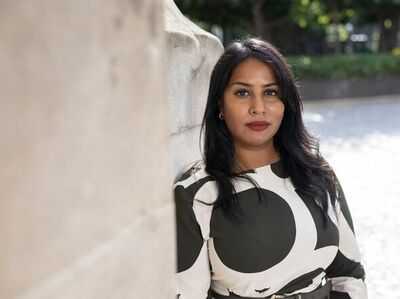
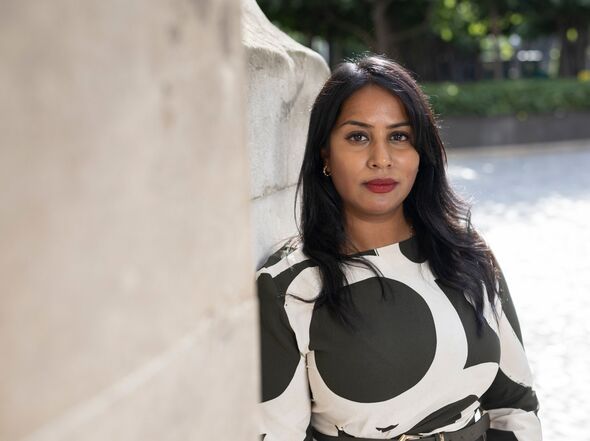
A new MP told of her horror sitting in Parliament for the first time and getting a text - saying her 39-year-old husband was in intensive care with a stroke. Uma Kumaran, 38, asked her parents to pop around and check on her husband, Jacob Tilley, last July 9, as he didn't look right as she got ready to head to the House of Commons as the New Labour MP for Stratford and Bow.
But as she stepped into the chamber and MPs re-elected the Speaker of the House she spotted urgent messages from her mum revealing gym-loving teetotaller Jacob had been rushed to a stroke intensive care unit. Under the gaze of live TV cameras, she had to flee the Commons in tears to a waiting taxi to rush to Jacob's bedside - not knowing if he would die, be left paralysed or recover.
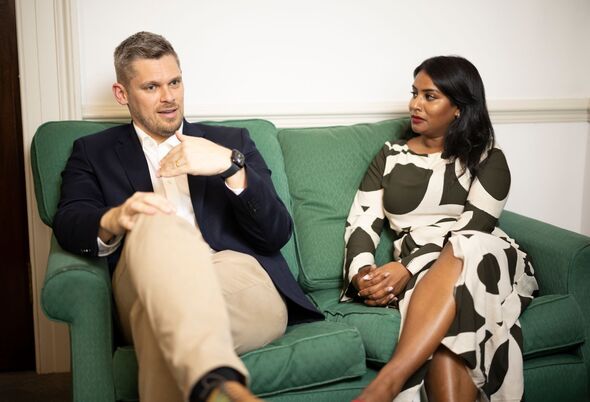
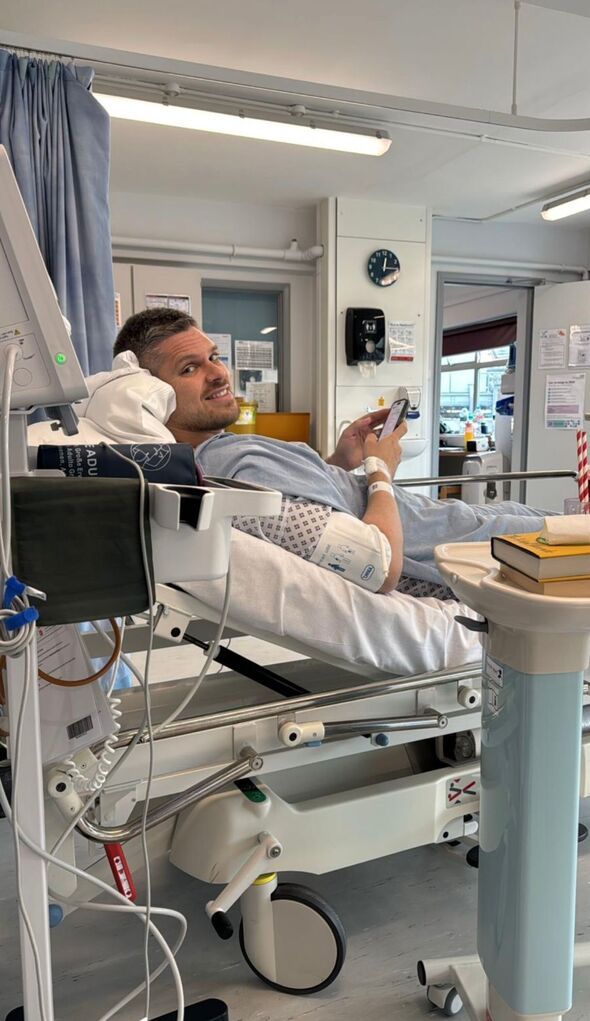
Now a year on, Jacob - recovering after surgery to repair the hole in his heart that caused his stroke - and Uma sat down with the Daily Express to tell their shocking story for the first time, back our stroke awareness campaign and warn others the condition can strike anyone at any age.
The pair explained that last July, they were preparing to head to Parliament for Uma's first day as an MP after a stressful few weeks of "running on fumes" campaigning in the General Election.
Uma explained: "I was ready, waiting and in our box room - turned into a makeshift clothing den for my suits and things for the campaign - Jacob had gone to get a shirt. But when he came back he still wasn't dressed.
"And I was like, 'what are you doing? We need to leave in five minutes.' And he said, 'I can't do my buttons up!'"
Jacob explained: "I had a load of freshly pressed shirts from the dry cleaners. And they all do the top button-up. So I'd gone to try and get the shirt. My left hand, I couldn't undo the button. So in my head, that's a bit strange.
"I thought maybe I've slept on it a bit funny. So I sort of sat down on the bed and thought 'maybe it's pins and needles?'"
Uma told us: "At this point, I've looked at him and he doesn't look great. I said, 'What's wrong?' And he said, 'I'm not feeling well'.
"And he was slightly slurring. Not a lot. But enough for me to say something's really badly wrong. He said 'oh, my arm's numb. It's tingling, my left hand.'
"My dad suffered a heart attack in 1999 and that is the one core memory. My dad said 'my left arm's hurting'. That's an immediate sign of a heart attack."

Luckily, Uma's dad survived his heart attack, but concerned for Jacob, she checked for other warning signs - but Jacob himself, by now, was suspecting he was having a stroke.
Prior to last year, he had suffered a couple of mystery dizzy spells he could not pin down to anything. Doctors now fear they were initial waves ahead of his actual stroke.
Jacob said: "In my head, I'm thinking, left arm, that's a heart attack or stroke. So I felt my heart to see if it was beating strange and it wasn't. So in my head, I've gone 'it's a stroke'."
Uma decided she couldn't go to Parliament, but Jacob insisted she not miss her first day, so he said he was going back to bed and "ushered" her out of the house.
As Uma's parents live just five minutes away she asked them to check on him and they did - but not before grabbing an aspirin just in case.
When they saw he was not in a good way they gave him the aspirin, then they rang family friends who are doctors and just happened by luck to be both round the corner - and they also dashed in.
After a quick few tests they took him to hospital - and this is when Uma got the call she was dreading.
Uma arrived inside the Commons late anyway and had to sit on the Conservative benches, and after around 20 minutes, she just found time to quickly check her phone.
She told us: "That is the closest I felt to having a heart attack because I saw 'A&E', 'intensive care', and 'stroke'. Those are the only three words. I've never gone back to look at my mum's messages.
"With the last one, I needed to get home and my heart was pounding. And it was so bizarre because this was the moment with Blackrod and all the ceremonial stuff was happening.
"Next to me was Olivia Bailey MP. I just showed her my phone and her eyes widened. She was like, 'get up now and go'.
"But how do you get up? I'm on the front row, hundreds of new MPs around us. She pointed me to the Speaker's head of office. I said, 'I really need your help. My husband's in intensive care, and I need to get out of Parliament. Please help!
"And she just got straight to her two Sergeant-at-Arms that were standing there, police officers. They whisked me down the back stairs. At this point (Tory MP) James Cleverley's coming up the back stairs.
"He said 'hello, you're one of the new MPs' but I started crying and said 'my husband's in A&E'. And he said 'Oh, my gosh. Go, go, go, go, go!'"
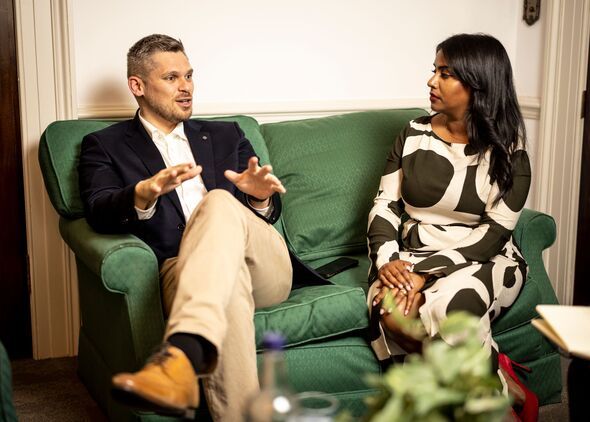
When Uma got to the London hospital stroke intensive care unit, Jacob was looking pale but alive, being pumped with blood thinners and five doctors around him.
Doctors told her: "Look, he's had a stroke. Your mum's quick thinking with the aspirins really helped."
One in four strokes happen to people of working age in Britain, but because Jacob was under 40 and healthy, they were worried he was going to have another stroke within the next 24 hours.
But every day in the UK, 240 people wake up to the reality of life after a stroke and the complex disability it can bring.
They kept him in for observation before starting the long process of rehab and finding out if there was a reason for the stroke.
He had a full month off his political consultancy work then returned slowly - doing just two hours a day at first answering emails.
He told us: "I was just overwhelmingly tired. The week before the stroke I had run 5km in 21 minutes. Then the week after the stroke I walked 100 steps and I was exhausted and had to go to sleep.
"For the First couple of weeks after, I was trying to go for little walks and add a couple of hundred steps each day.
"Then all the tests started to come back and doctors said 'You're really healthy'. I was like 'I'm happy to know that but clearly there is something wrong somewhere because I have had a stroke!'"
Earlier when the news broke about Jacob's stroke one of their friends Dr Zubir Ahmed (Labour MP for Glasgow South West) urged Uma to get medics to check to see if Jacob had a "hole in his heart".
In September, after his stroke, Jacob had bubble echocardiography to see if he had any hidden or genetic issues with his heart that could have caused his stroke.
He explained: "You breathe in and hold and release and they can see what is going on with my heart as they injected dye into it. Afterwards Uma's saying 'oh my god there's a hole in your heart!'
"I said there's multiple holes in my heart to let the blood in and out - and anyway you're not a doctor!"
Uma added: "I could see it, it was so obvious on the screen. Then the medic doing the test called another three doctors, crowded round the screen.
"We got the confirmation in around October that Jacob had the hole in the heart, but we were told his follow-up appointment was not for another three months.
"He was sitting all through Christmas and New Year knowing he had a hole in the heart. It was terrifying."
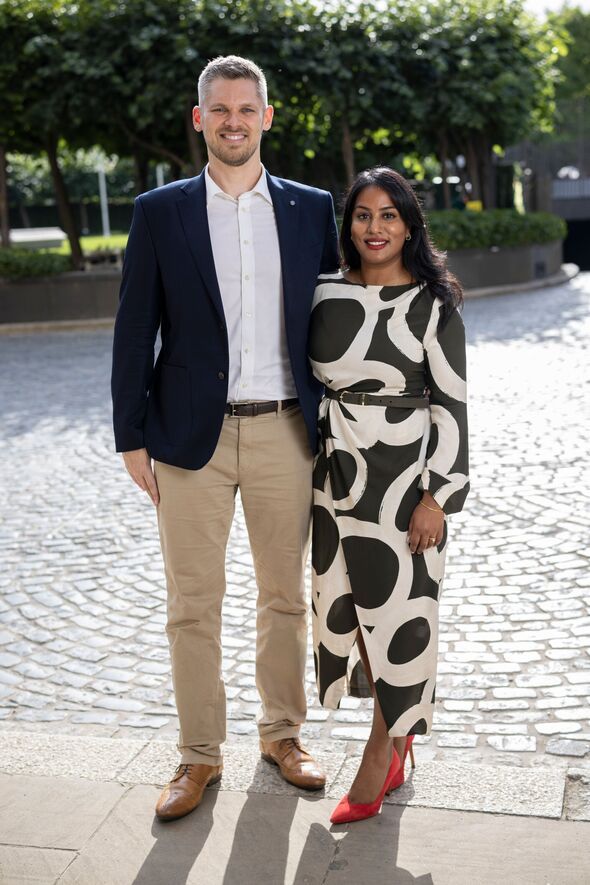
Jacob added: "I was on medication ever since it happened but I could never relax after that knowing I had a hole in my heart. Our lives were on hold."
Uma said: "I know Jacob had a real sense of unfairness this happened to him as he had lived a healthy lifestyle and I know other stroke sufferers can feel the same."
Jacob joked how when he met up with his friends after it happened, they all teased him that maybe he should have drunk more and exercised less - as despite his healthy lifestyle, being the only one of his mates who doesn't drink yet, he had a stroke anyway!
He told us: "They said I should have been on the pints all this time! There was a sense of unfairness - I had done everything I had been told yet I was the one this has happened to."
Now Jacob has had his surgery to repair his heart, and he is fully healthy. Both are keen to support the Stroke Association and raise awareness, but it has also inspired Uma to battle for more investment in the NHS.
In January, as PM Sir Keir Starmer unveiled his AI Opportunities Action Plan, he told how doctors treating prison officer Deb Kelly's stroke using AI were able to pinpoint the location of her blood clots within three minutes - saving her life and her quality of life.
Uma told us: "That cradle to the grave care that our NHS is built for is absolutely there but let me tell you looking around it's in dire need of investment.
"You have to very actively make this a priority. We have to make sure the 'Act FAST' for the new generation; put money and investment into AI for stroke prevention and care while digitalising patient records can also be transformative.
"We are very lucky as this is a very positive story of what the NHS can be like."
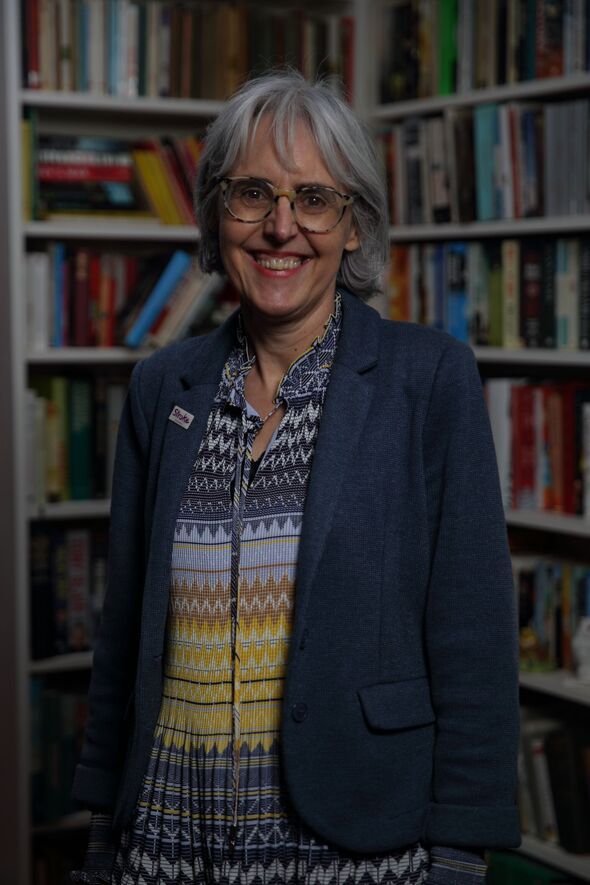
Last week the government unveiled their 10-Year Health Plan with plans to both reduce the number of people who have strokes and also better support the 1.4 million stroke survivors in the UK today.
The UK Government has promised to cut stroke deaths and stroke-related disability by 25% by 2035.
Previously the Stroke Association has warned that victims are facing a postcode lottery to access lifesaving treatment - and long ambulance waits, handover delays and a lack of imaging capability for diagnostic testing are delaying patients' access to specialist care and time-sensitive treatment.
Around 20% of stroke patients could benefit from thrombolysis, a drug that breaks down a clot and restores blood supply to the brain, which should be administered within four and a half hours of a stroke.
Thrombolysis should be administered within four and a half hours of a stroke. However, in 2023/24, just 11.6% of patients received it at all.
There is also a "significant regional variation" in thrombectomy - simple surgery to 'capture' a blood clot that can often leave a patient recovered enough to leave the hospital that very same day.
The Sentinel Stroke National Audit programme estimates the current thrombectomy rate at 4.2%, although it is 10.3% in London compared with 1.1% in the East of England.
Juliet Bouverie OBE, CEO of the Stroke Association, said: "The 10-Year Health Plan marks the long overdue opportunity to bring about historic change across the NHS to better support people affected by stroke.
"As nine out of 10 strokes are preventable, smoking and weight management programmes, as prioritised in the Plan, could also reduce a person's chance of having a stroke.
"We know how hard healthcare professionals work to care for stroke patients. But, despite their best efforts, stroke survivors have long been let down by a system that's both disjointed and under-resourced.
"They have missed out on opportunities to get the care and support they need to rebuild their lives - that has to stop now."
* To read more about strokes or donate to the Stroke Association charity visit - https://www.stroke.org.uk/